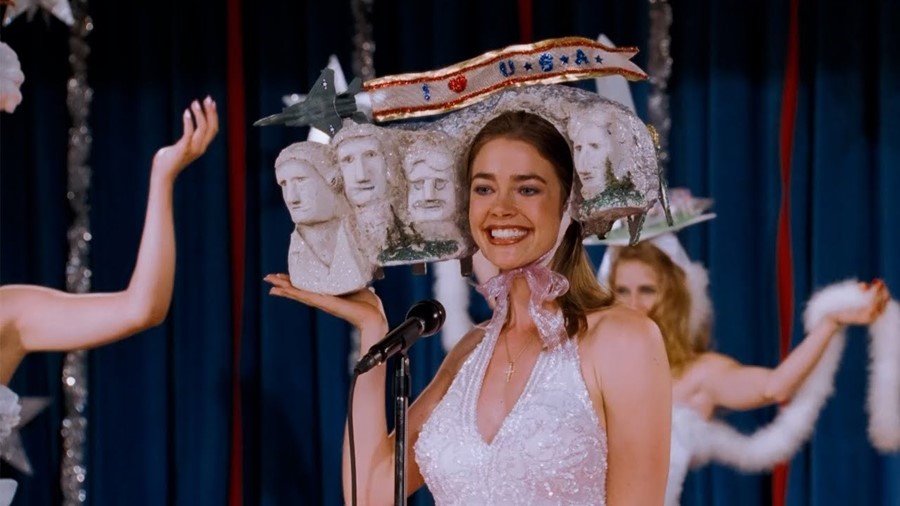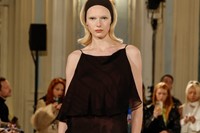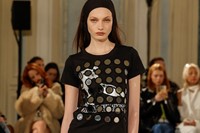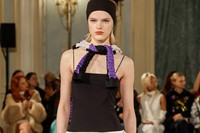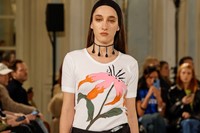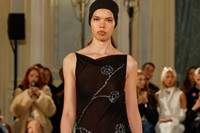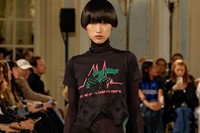Following his Autumn/Winter 2024 show which referenced the women who inspire him, London-based designer Conner Ives discusses the five films that play a powerful role in his work
Women are at the centre of Conner Ives’ universe – not just Conner Ives the brand, but Conner, the man, too. That’s not purely because he’s crafting womenswear. Having graduated from Central Saint Martins in 2020, the New York native was almost immediately picked up by the BFC’s Newgen initiative to debut his first show on the London Fashion Week schedule two years ago – by then he’d already dressed dozens of society’s leading women, including Adwoa Aboah for the 2017 Met Gala. The steady ascent of Conner Ives’ star is surely a masterclass in sustainable growth, fuelled by a genuine passion for retelling the new Americana through female archetypes – and for his sentimental Autumn/Winter 2024 show, The Swans, he crafted a collection that says thank you to the muses who have shaped his career so far.
The collection’s name is borrowed from Truman Capote’s accounts of the elegant debutantes of 70s New York, and like Capote’s own ‘swans’, Ives’ entourage came in full force – not on the expected front row, but instead they flounced through The Savoy’s salon-style ballroom. Stevie Sims, Josie Sidhu, Chloe Nardin, Sofia Testino, Alex Consani and Ella Richards all walked. Tish Weinstock closed, and during his closing bows, Ives wept. The collection was a palpable departure – the women he’s referencing aren’t these moodboard-ready characters; their lives and relationships can’t be condensed into an A4 sheet of press notes. They’re complex women Ives cares deeply about. They’re his swans.
“As a designer you get put into boxes,” Ives says. It’s the day after his runway presentation, and he’s reflecting on the past 24 hours. “It makes your work more easily consumed. But as a creative, you do everything you can to tear that box apart.” With a voracious appetite for discovery, the designer’s previous collections have each referenced various facets of pop culture: his A/W23 show paid homage to everything from Paul Thomas Anderson’s 1999 film Magnolia to Kate Moss’s Glastonbury looks, while his A/W22 show saw references to The Devil Wears Prada and The Sopranos. Idiosyncratic artefacts emerge in a feeling, a silhouette, or sometimes more overtly, like the Parent Trap-style wedding dress complete with a white veiled top hat closing his collection last year.
When discussing the films that made him, Ives makes an excitable narrator, squeezing his seemingly sponge-like memory of many cultural preoccupations, wrapped up in their colour and firing out cherry-picked references at breakneck speed. Here, Ives speaks about five films that have inspired his work thus far.
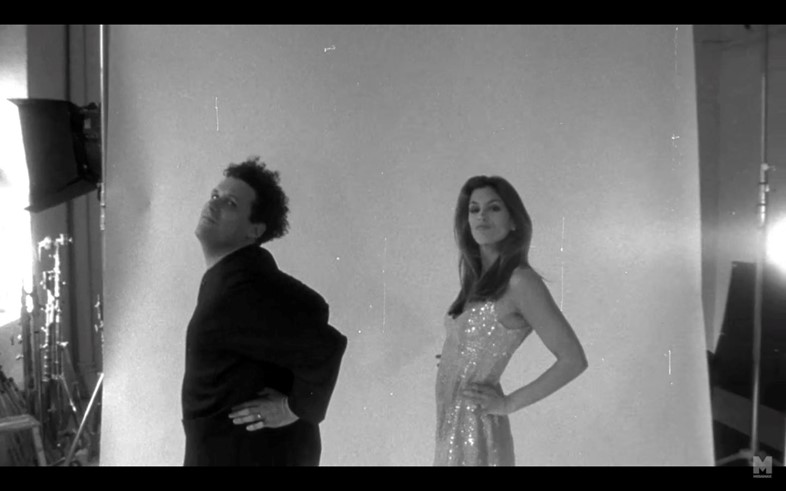
1. Unzipped, 1995
“I remember seeing Unzipped as a kid – I think I was 16 or 17. It felt like a comfort movie. I was at high school living in the suburbs of New York so I very much needed the escapism. Unzipped is really cleverly presented around a redemption arc. It’s a documentary on Isaac Mizrahi’s fall 1993 collection, and his previous collection had been panned by critics, which is such a fascinating concept because it goes back to a time when fashion criticism was actually fashion criticism. It’s funny for me to be like ‘bring back criticism’, but I would love it if someone told me ‘I hated this collection for this reason’. I think the fashion industry suffers from a seriousness issue, where maybe we feel like fashion design is an applied art, and that makes it superficial, and by all means, at the end of the day it’s just clothes, we’re not changing the world here. But I think Unzipped captures so perfectly that magic of fashion, and I think that I was dream-casting my way out, like: ‘I’m going to move to London to go to school and become a designer!’ It was like manifesting my destiny, which is quite sweet as well.”
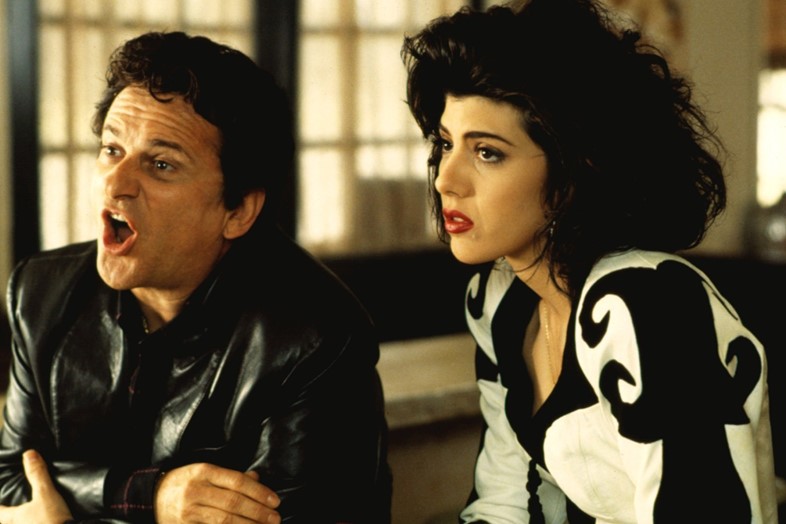
2. My Cousin Vinny, 1992
“In My Cousin Vinny, these two guys are on a road trip, driving through the American South. They’re both from New York, and when they leave a convenience store they get stopped on the highway and get accused and arrested for murder. Almost the whole movie is them in a jail in Alabama, but lo and behold, one of the guys has a cousin called Vinny who has just passed his bar exam in corporate law – you know, nothing to do with criminal defence. My mum is from the Bronx, my dad is from the Midwest, Minnesota. So I think it was that interplay that mirrored what was going on in my day-to-day life. They used to quote it to each other all the time. It stars Marisa Tomei and Joe Pesci – Tomei has probably one of the most incredible wardrobes ever in that movie. I was always obsessed with the clothing in the film, but then more so as I got more and more into fashion. It’s peak 80s, leathery style; if we want to talk about the mob wife aesthetic, you have to talk about Marisa Tomei in My Cousin Vinny because she set the tone for all that. She wears these incredible kinds of 80s Alaïa body suits. At one point, she gets out of this 95 Cadillac and she’s wearing almost like stirrup boots – but it’s like a high-heeled leather studded boot. Her first line, pretty much like directly to cameras, is: ‘I bet the Chinese food here is terrible.’ My parents would always say that to each other. It’s just so good. It’s a feast for the eyes.”
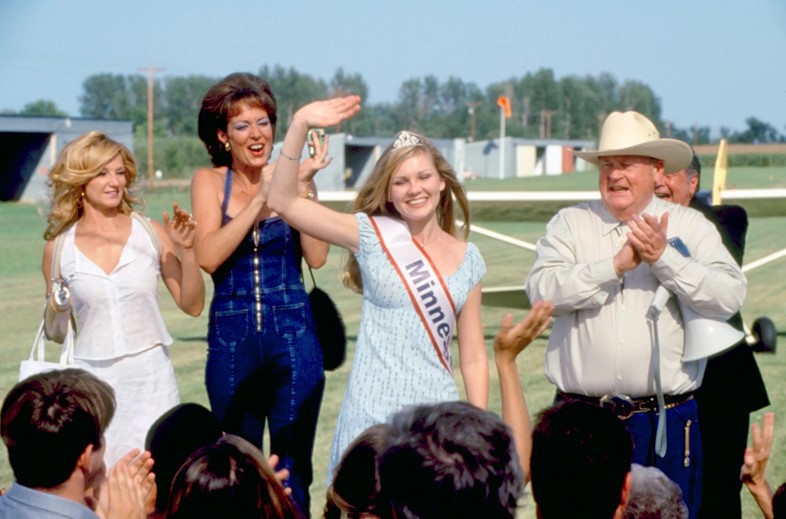
3. Drop Dead Gorgeous, 1999
“Another camp classic: Drop Dead Gorgeous. Amy Adams, Kirsten Dunst, Kirstie Alley, even Denise Richards is in it. I’ve always loved a mean girl – acted or real – and Denise Richards really takes the cake here. My boyfriend Max was the one who introduced the film to me last year, but I’d seen it referenced so much in culture I felt I’d seen it already. My dad is from Minnesota, where the film is set, so I relate to the whole ‘small town characters’ thing. The concept of a beauty pageant gone awry, with a dark twisted underbelly where the girls are so hungry to be the ‘it’ girl that they’ll off the other contestants through violent ends – it’s a brilliant movie. The costuming left a huge impression on me: it’s that perfect mid-90s suburban American wardrobe, which could almost be compared to a Sofia Coppola film on the basis of its coquettishness.”
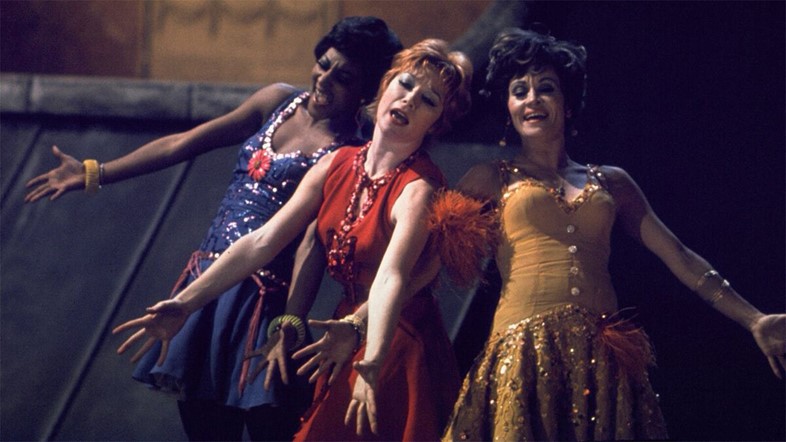
4. Sweet Charity, 1969
“I was introduced to Sweet Charity when I was a theatre kid, before I did fashion. I got to a point where I just couldn’t put up with theatre kids anymore. The singing was a lot. They were always turned on. I’m an animated person, and I love animated people, but the theatre kid thing … it came to a point where it was overwhelming, and I thought ‘I’m going to gracefully bow out here. But through that, I was introduced to the heroes of theatrics, and Bob Fosse was right up there. Sweet Charity might arguably be my favourite not for movie content, but more so for aesthetics. I couldn’t even really tell you the plot. It’s so visually stunning, and overwhelming, and gay, that it’s hard to track what’s going on. There are specific scenes I will come back to season after season. The one in the middle with the ‘The Aloof’, ‘The Heavyweight’ and ‘The Big Finish’, with all Fosse-isms: it’s the choreography with cigarettes on sticks, where the male dancers are blowing plumes of smoke into the faces of the feathered showgirls. He gave that generation of gays just so much to kind of fan girl over, and don’t think anyone could ever hold the candle to it. That will always be my Roman Empire.”
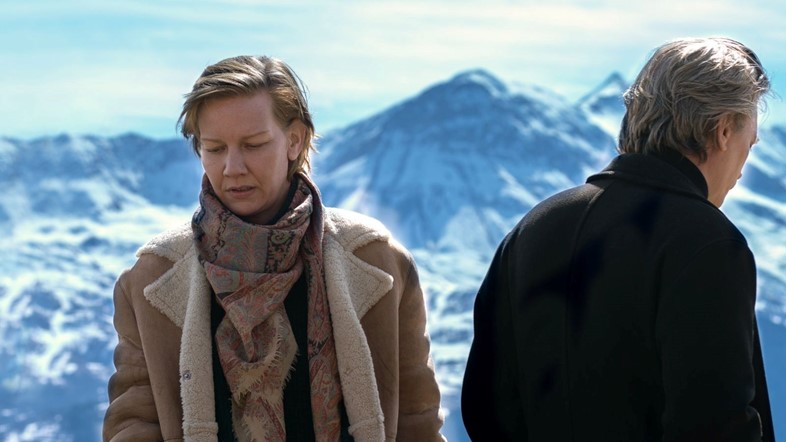
5. Anatomy of a Fall, 2023
“Anatomy of a Fall is one of those films that’s been rattling around in the back of my head since I saw it. It so brilliantly depicts the messiness and complications of human life, human relationships and human interactions. I was so moved by that movie, I cried two or three times. I know I mentioned I was bawling my eyes out backstage at my show for 30 minutes, but it takes a lot to move me to tears at the cinema. It probably echoes themes in my work – I love complicated female characters. You don’t know whether you can trust her [Sandra Hüller’s character, Sandra Voyter] or not. I love the ‘uptight German woman in a French court being tried for the murder of her husband’ – even that, without all the complexities of her character, would be a moving performance to begin with. Then with her blind son who she can’t be left alone with because the court would argue that a bias would be created in the house – it makes your skin crawl from the level of complications. I always think of that final scene where she’s in the sleeping bag and smiles to herself … [Hüller] got an Oscar snub for that film, I think she’s incredible. And now she’s a Vuitton girl, which I fully support. I think Ghesquiere should just give her something absolutely ridiculous to put on. I ride for it!”
